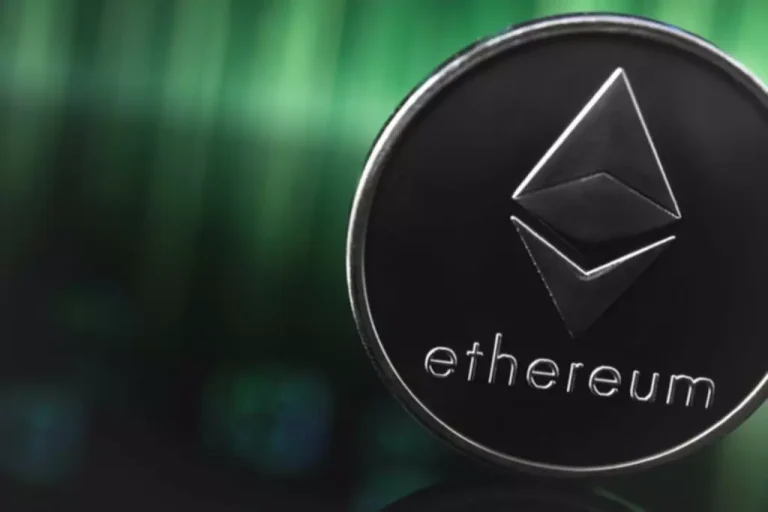Bitcoin vs Ethereum: Whats the Biggest Difference?
Content
Bitcoin and Ethereum initially both used the Proof of Work (PoW) consensus mechanism to validate transactions and secure the network. PoW involves miners solving complex mathematical problems to add new blocks to the blockchain, which requires significant computational power and energy. Both Ethereum and Bitcoin run on blockchain technology, with a major focus on decentralisation. While both have a number of other similarities, they have many differences, as well. Although other smart contract platforms have gained Decentralized finance prominence, Ethereum remains the most popular choice for dApp developers. While the intended, main purpose of this token is to pay for transaction fees on the Ethereum network, ETH is also used and traded as a digital currency on exchanges and even held as an investment.
Ethereum vs Bitcoin: Is Ethereum a Better Bitcoin Alternative?

They were built for different purposes, but those differences are actually beneficial. While they might both be used in exchanges of value, they’re very different beasts. No sane person would compare gold to Fortnite V-Bucks, but that’s what many experts do. The other is a tech stock and security just blockchain vs ethereum like the shares of Google or Apple. Ethereum is similar to a traditional company with lead developers that control it.
Why is bitcoin more expensive than ethereum?
- However, in September 2022 the Ethereum mainnet linked with its Beacon Chain in an event called The Merge, officially adopting a Proof of Stake consensus mechanism.
- In fact, Ethereum may overtake Bitcoin, according to Yahoo Finance, which cites the platform’s custom contracts as a more versatile alternative to Bitcoin.
- However, what sets NEO apart is that its network is currently tightly controlled by ‘NEO Team’, who require users to have a verifiable identity on the network.
- When choosing between them, consider your investment goals, risk tolerance and long-term regulatory concerns.
This information must be accompanied or preceded by a current iShares Ethereum Trust ETF prospectus and iShares Bitcoin Trust ETF prospectus. Bitcoin received the Taproot upgrade in 2021, so there’s not much coming in the next few years (let alone replacing PoW). Ethereum 2.0 started in 2020 and finishes this 2022 with “the Merge.” What’s next is the launch of an anticipated ETH hard fork, Pulsechain. High TVLs make cyberattacks more expensive and unlikely, which is why users receive interest rewards when staking large amounts for months. In this article, we will take an in-depth https://www.xcritical.com/ look at the differences between Bitcoin and Ethereum. Learn about Ethereum’s attempt to solve the blockchain trilemma with a move to Proof of Stake, sharding, and more.
Which of the two cryptos in the “Ethereum VS Bitcoin” comparison is the better one?
Sound money is money that is not susceptible to arbitrary changes in its supply. A money cannot be sound if it is governed by a centralized entity or is otherwise subject to arbitrary changes. Ether could be decreed by the developers as finite tomorrow, but at any later point, the same cabal might reverse this policy, as they have in the past. Conversely, Ethereum, created in 2015, is a relatively new player in the game. This implies Bitcoin had an extended period to establish itself as the dominant market player.

The shift to PoS will increase the differences between Bitcoin vs Ethereum. PoS algorithms do not use miners to validate and create new blocks, instead, stakers lock their ether coins into pools on the blockchain in exchange for the right to become validator nodes. If a node is selected to process a block, they receive ether coins as a staking reward. This process is far less energy intensive than mining in a PoW system. Thousands of cryptocurrency token projects have emerged in recent years that run on the Ethereum blockchain, adhering to the ERC-20 compatibility standard.
This process has raised environmental concerns due to its high energy consumption. Ethereum, transitioning to a Proof-of-Stake (PoS) model with Ethereum 2.0, aims to minimize its environmental footprint. Unlike PoW, PoS secures the network through staked assets, drastically reducing the energy required for network validation and offering a more sustainable alternative. Gavin Wood, a key figure in Ethereum’s early days, authored the Ethereum Yellow Paper that described the Ethereum Virtual Machine (EVM) — the runtime environment for smart contracts in Ethereum.
Ethereum leads DeFi, and powers promising projects like Pulsechain, HEX, and LiquidLoans. The winning validator earns rewards for every block (e.g., 12.5 BTC plus transaction fees), which adds to the circulating token supply. There are currently less than 21M Bitcoins, which is the maximum supply. It’s also the most stable cryptocurrency (arguably more than under-collateralized stablecoins) because of its market size and secure technology. You can now use Bitcoin on exchanges, BTC ATMs, online stores, payment service providers, and even local businesses. Whether you’re a seasoned crypto investor or just starting out, understanding these key differences is crucial for making informed decisions in the crypto market.

Ethereum and Bitcoin are both cryptocurrencies that use blockchain technology. Both Bitcoin and Ethereum grapple with scalability challenges, and both resort to layered solutions to address this concern. Bitcoin developers are actively developing the Lightning Network, a Layer 2 solution designed to facilitate faster and more cost-effective transactions. Similarly, Ethereum utilises Layer 2 solutions that aggregate substantial transaction volumes before submitting them to the Ethereum blockchain, effectively mitigating transaction fees.
IShares unlocks opportunity across markets to meet the evolving needs of investors. With more than twenty years of experience, iShares continues to drive progress for the financial industry. IShares funds are powered by the expert portfolio and risk management of BlackRock. While Ethereum isn’t the most efficient blockchain, it has massively improved since 2020’s upgrade.
In 1999, Nobel Prize winner in economics Milton Friedman believed the Internet was going to be one of the major forces in reducing the role of government. He also thought that the one thing missing was reliable electronic cash, and just as he predicted, in 2009 the cryptocurrency Bitcoin was born. Below is a head-to-head comparison that shows the key differences between Ethereum and Bitcoin at a glance. Before we delve into the differences, let’s briefly examine each crypto, its history, and key features. An alternative payment system, a way to store value, a market benchmark, and little more.
Cryptocurrencies are virtual currencies which operate independently of banks and governments but can still be exchanged – or speculated on – just like any physical currency. Since then, thousands more cryptocurrencies, known as altcoins, have launched. There was another price spike in June 2019 before prices retreated again.
On the other hand, Ethereum is more actively used as a platform for creating decentralised applications and financial apps. As of November 2024, there are more than 1,500 DApps on the Ethereum network. A notable example is the CryptoKitties collection, which quickly gained popularity within the community. However, when it comes to differences, Bitcoin is primarily used as a long-term investment asset. Its stability and relatively predictable price movements make it an excellent asset for the long run.
BitDegree.org does not endorse or suggest you to buy, sell or hold any kind of cryptocurrency. Before making financial investment decisions, do consult your financial advisor. Bankrate.com is an independent, advertising-supported publisher and comparison service. We are compensated in exchange for placement of sponsored products and services, or by you clicking on certain links posted on our site.
In Bitcoin, every time a miner adds a block to the blockchain, he is rewarded with 6.25 bitcoins, a rate set in November 2021. In Etherium a miner, or validator, receives a value of 3 ether every time a block is added to the blockchain, and the reward will never be halved. Ether works very similarly to Bitcoin and can be used for peer-to-peer payments.
